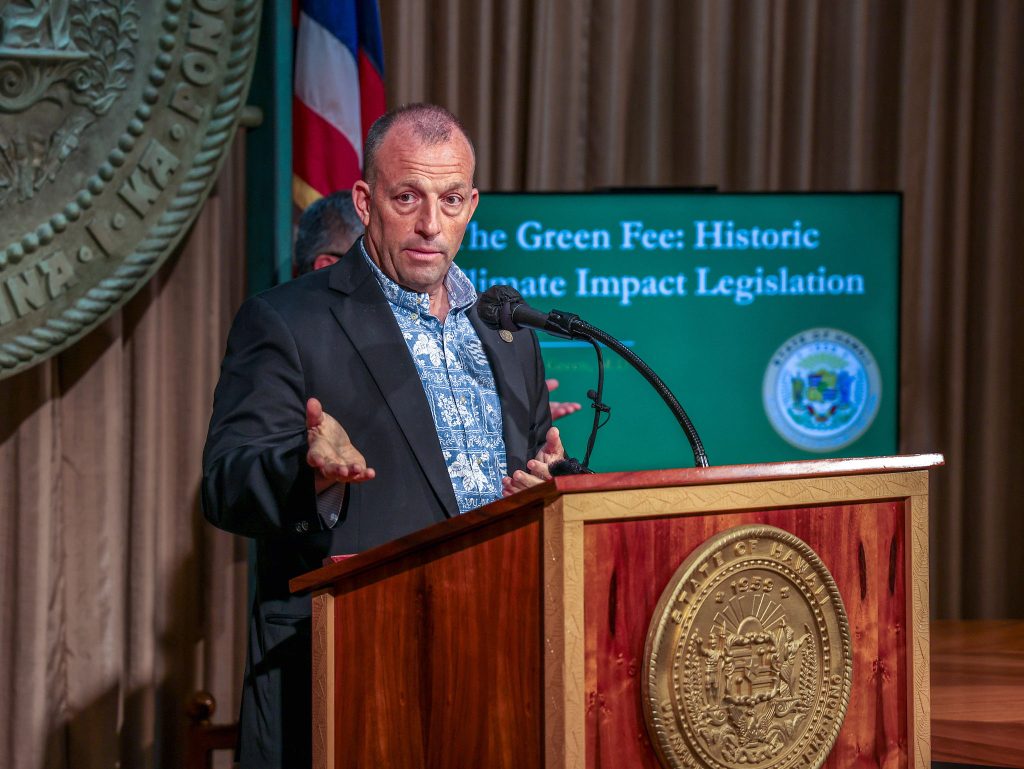Gov. Josh Green honored on ‘TIME100 Climate’ list for impactful leadership
Gov. Josh Green was named to this year’s “TIME100 Climate” list, which recognizes the 100 most influential leaders in the world driving climate action, innovation, and resilience.

According to the list, TIME selected Green for his leadership in transforming Hawaiʻi into a global model for sustainability, including the enactment of the nation’s first Climate Impact Fee, or “green fee,” on visitors, generating an estimated $100 million annually for environmental restoration and climate adaptation projects statewide.
“I am deeply honored to be named to the TIME100 Climate list,” Green said. “This recognition belongs to the people of Hawaiʻi, who are showing the world that even small island communities can lead with boldness and innovation. From investing in renewable energy and electrical grid modernization to restoring our natural ecosystems and advancing climate resilience, Hawaiʻi is taking decisive action to protect our planet and our future generations.”
The “TIME100 Climate” list features leaders from government, business, technology, and civil society who are actively shaping solutions to address the global climate crisis and are delivering measurable change in the areas of decarbonization, resilience, energy transformation, and climate equity.
In addition to the Climate Impact Fee, Hawaiʻi has advanced some of the most ambitious climate policies in the United States.
According to Green, the state will be working to transition away from imported fuel oil by updating the electrical infrastructure to push for greater efficiency and investing in local renewable energy production to stabilize costs, reduce emissions, and ensure long-term resilience.
“Using oil to generate electricity is inefficient, costly, and carbon-intensive, but currently makes up almost 70% of our state’s energy generation,” Green said in the TIME100 interview. “Through executive action and public-private collaboration, we will aggressively support the buildout of local renewable energy like rooftop solar. We also will push for fuel alternatives to oil, achieving greater energy security, lower costs for local residents, and significantly reduced emissions on our way to our 2045 decarbonization goals.”
Following the 2023 Maui wildfires, the state has also implemented landmark wildfire prevention and disaster resilience measures—including the reestablishment of Hawaiʻi’s statewide Fire Marshal, the first in nearly 46 years, aggressive fuels management, improved emergency warning systems, and investments in community-based resilience planning—to protect lives, infrastructure, and natural resources in the face of increasing climate threats.
“Hawaiʻi is on the front lines of the climate crisis, but we are also on the front lines of solutions,” Green said. “When visitors come to Hawaiʻi, they are not only experiencing the beauty of our islands—they are helping protect it. We are demonstrating that environmental responsibility and economic vitality can—and must—go hand in hand.”
View the full TIME100 Climate list online.



